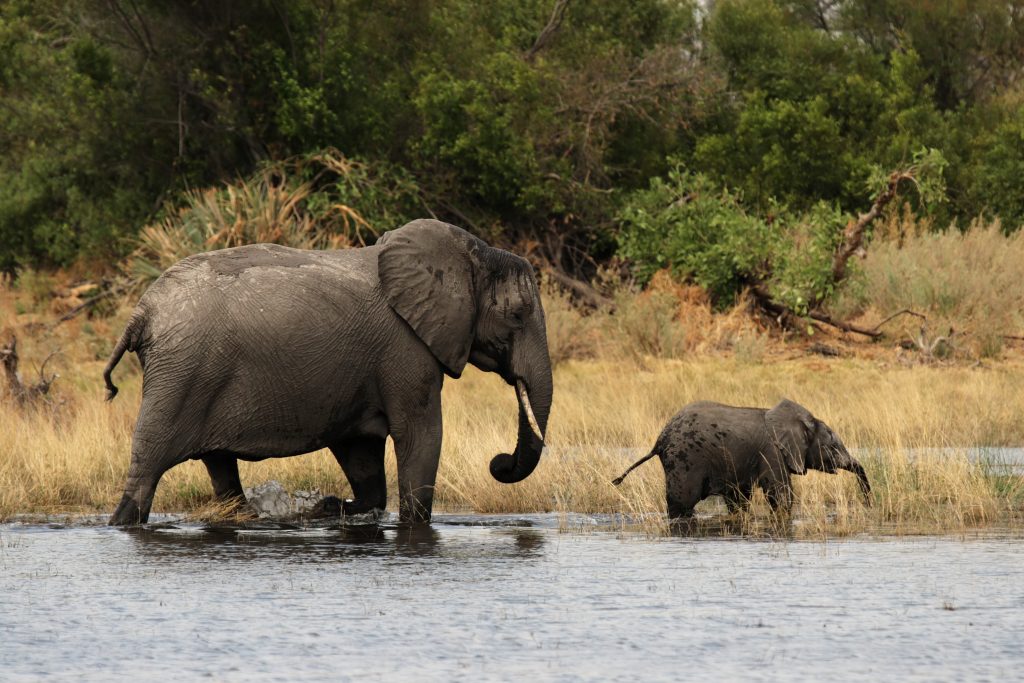The U.S. Fish and Wildlife Service (FWS) has an easy decision to make. The FWS must decide whether to issue eight permits to import elephant hunting trophies from Zimbabwe and Namibia. Those countries together conserve increasing populations of over 100,000 elephants. Both countries have internationally-recognized community conservation programs that depend largely on elephant hunting to generate conservation benefits and improve rural livelihoods. Unfortunately, anti-hunting groups are trying to cloud the issue and spread misinformation about the status of elephants in these countries and the rest of southern Africa. Such groups sadly prioritize their own ideologies and fundraising over the future of the elephant and the rural people who ultimately will decide its fate.
Recently, the FWS settled a lawsuit challenging the failure to process permit applications for elephant imports. The FWS must process eight outstanding applications by this month. In response, last week the Center for Biological Diversity (CBD) shared their petition to the Biden Administration to deny these permit applications. CBD’s request is contrary to scientific data, which overwhelmingly shows the benefits of elephant hunting for conservation of the species. CBD has also turned a deaf ear on the testimony and pleas of African governments and communities.
CBD’s petition is based on five false claims. First, elephant hunting absolutely “enhances” the survival of the species. It is uncontroverted that the highest populations of elephants live in the countries where they are hunted. Zimbabwe and Namibia are two such countries; Botswana, Tanzania, South Africa, Zambia, and Mozambique altogether are home to over 80% of Africa’s elephants. Hunting generates revenues to support the protection of habitat for this species (and many others)—crucially, it generates incentives, in terms of game meat, employment, and community projects—that make elephant an assert instead of a liability for the rural people who would otherwise see their crops raided and homes trampled. These benefits address the primary threats to elephant and other species.
That hunting “enhances” the survival of the species is no accident. This outcome is recognized in the management plans and policies of the countries that rely on hunting as a conservation tool. This outcome was also recognized by the “architect” of the Endangered Species Act (ESA), Rep. John Dingell. On the floor of Congress, Dingell explained that the ESA was “carefully drafted to encourage State and foreign governments to develop healthy stocks of animals occurring naturally within their borders. If these animals are considered valuable as trophy animals, and are not endangered, they should be regarded as a potential source of revenue to the managing agency and they should be encouraged to develop to the maximum extent compatible with the ecosystem upon which they depend.” With respect to the import of these species, Dingell explained that “no barriers” should be placed on hunting and subsequent import of healthy wildlife populations, “because it is only in the understanding that these animals have a real and measurable value that many of the less developed countries will agree to take steps to assure their continued existence.” CBD attempts to defame the FWS’ enhancement policy as “pay to play,” but the very drafters of the law acknowledged that economic (and other) benefits are essential to protect the future of these species.
CBD next claims that elephant populations are decreasing, while falsely placing blame on the international hunting community. While certain populations of elephants have declined in countries where they are not hunted, this is largely due to human encroachment on habitat. Where elephants are hunted, greater amounts of habitat and investments in anti-poaching have led to increasing populations. In fact, in some areas populations of elephants are increasing to unsustainable levels and far exceeding the carrying capacity of the environment, such as in the Okavango Delta in Botswana and the Hwange region in Zimbabwe.
The reverse is also true. Kenya has embraced the anti-hunting movement, and since the 1970s has attempted to build successful conservation programs without consumptive use. Because it is difficult for communities to benefit from wildlife without the revenues, employment, and other incentives from hunting, wildlife is often perceived as a threat, no matter its inherent value. Because communities suffer from crop raiding and other wildlife conflicts, they will often retaliate against the species, or close their eyes to poaching. Additionally, because they receive fewer economic benefits from wildlife, they own more livestock to sustain their livelihoods. Since the 1970s, when hunting was banned, Kenya has tragically lost 70% of its wildlife, while numbers of sheep and goats have skyrocketed.
Contrary to the CBD’s assertions, hunting of elephants is an ethical and highly regulated activity that benefits both elephants and the ecosystem as a whole. Hunting operators will try to target elephants that have been involved in human-wildlife conflicts, damaged property, or even injured or killed community members. Countries restrict the size of legally harvested ivory, which focuses hunters on older male elephants that have aged out of the breeding pool. In addition, hunters will take tuskless elephant, which pose a threat to communities.
The alternative to regulated hunting is often illegal poaching, retaliatory poisoning, or death in the wild.
Not only is hunting scientifically supported but it is also overwhelmingly supported by African communities and governments. These governments and rural representatives have repeatedly spoken out against efforts, like CBD’s, to obstruct legal imports and reduce the benefits of regulated hunting. For example, the Namibian Association of CBNRM Support Organisations objects that, “there is widespread misconception that banning elephant hunting outright, or banning elephant hunting imports, will help Africa’s elephants. On the contrary, a ban on elephant hunting trophies would have catastrophic consequences for elephants. In general, unjustified bans and restrictions of wildlife trade reduce the value of wildlife, especially when species like elephants are prone to destroy crops and thus increasing human-wildlife conflict and illegal killing.” Their letter goes on to say, “Imposing unfair bans or restrictions of wildlife trade impedes the African communities from conserving their natural resources according to their own conservation, management, and governance systems.” Western organizations and governments simply do not have the right to dictate the management of African wildlife.
Finally, CBD maligns the conservation programs of Namibia and Zimbabwe. Yet both of these countries have been recognized for their conservation successes, particularly in protecting elephants, lions, leopards, rhinos, and other species that are declining or extinct in countries where they are not hunted. Both countries are also pioneers in community-based wildlife conservation. These programs have been lauded for improving rural livelihoods, expanding wildlife habitat, reducing poaching, and encouraging the recovery of at-risk species. CBD relies on old data or takes facts out of context. But, again, the success of wildlife in these countries speaks for itself.
Efforts from CBD and other animal rights groups to ban hunting or the import of elephants must be opposed. The Biden Administration must stand on the side of science, proven conservation practices, and African governments. For a full list of community and scientific resources, please visit https://safariclub.org/international-hunting-africa/. SCI continues to fight against misguided efforts to ban hunting and will always stand First for Hunters.




